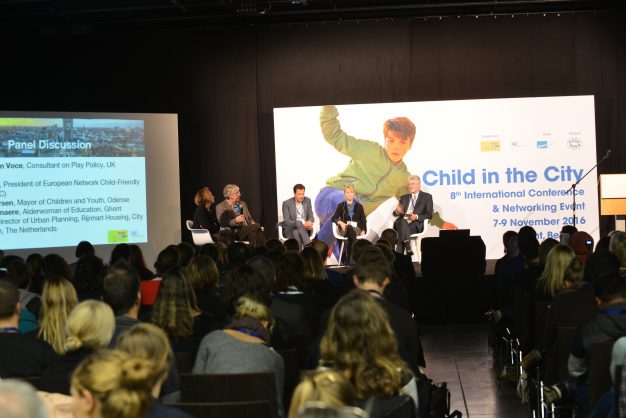
Ghent conference says cities have vital role for refugee and migrant children
The conclusions of this year’s Child in the City conference, held in Ghent in November, have sent some strong messages to local policymakers and their municipalities about the need for greater commitments to holistic, long-term and sustainable strategies and plans for supporting the most vulnerable children in society, and to recognise all children and young people as citizens and stakeholders, not merely adults in the making.
Among the main conclusions, agreed by groups of delegates at synthesis sessions to discuss the key lessons and challenges derived from the three-day international conference, were:
- Local government has a vital role in promoting and supporting the positive, multi-cultural integration and adaptation of refugee and migrant children, which is vital to counter the risk of radicalisation and to engender long-term benefits both for the host society and for migrant communities.
- Municipalities need to promote the concept of children as citizen’s today, not merely the adults of tomorrow
- They should develop holistic, interdisciplinary approaches to enhancing and supporting the social position of all their children and young people.
- Policy-makers and children’s advocates need to be conscious and vigilant about the effect of commercialisation and commodification of city life in general and childhood domains in particular, This should be a bigger focus of research.
- The need to embed child-friendly principles within the developing built environment needs long-term strategies that will therefore need to have links to those for healthy cities and sustainability, or there is a danger of them becoming victim to 4-5 year political cycles.
A full slide show presentation of the concluding synthesis of Child in the City, 2016 can be downloaded here.




